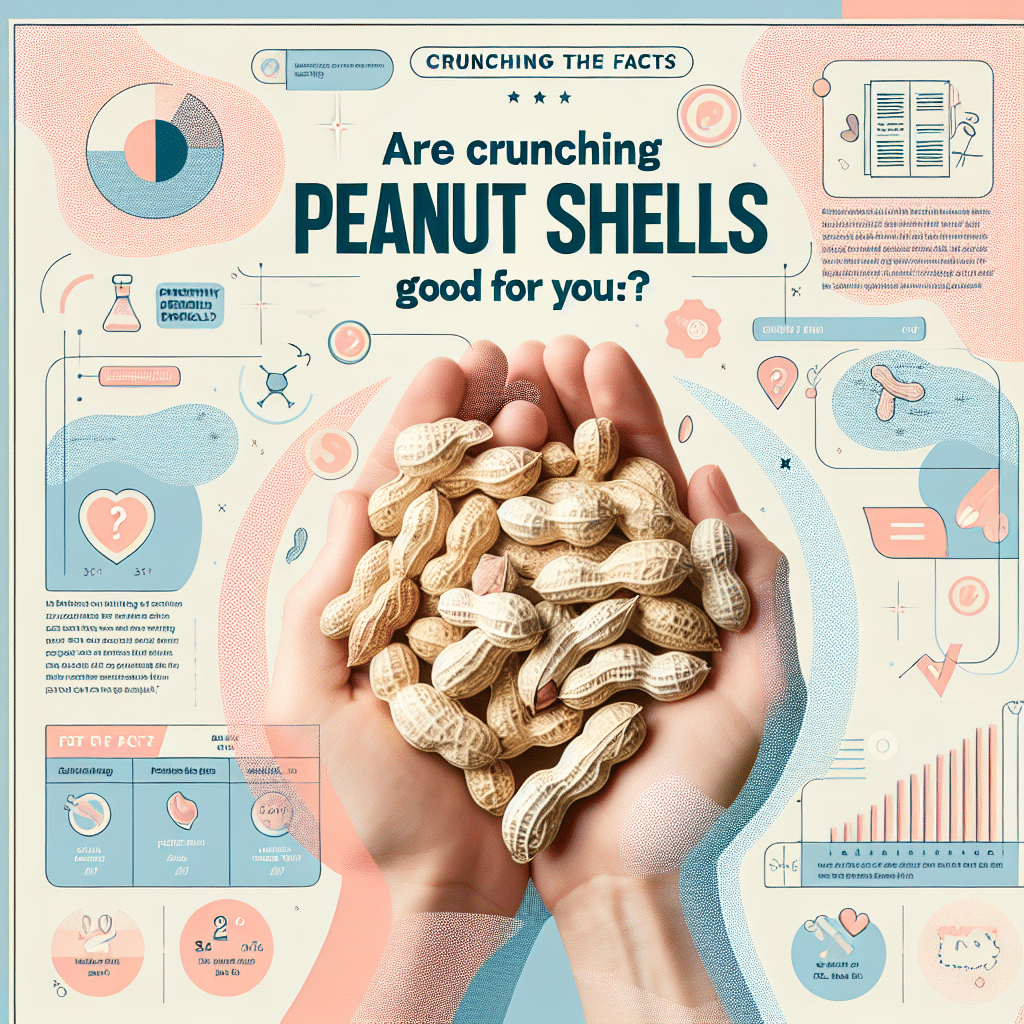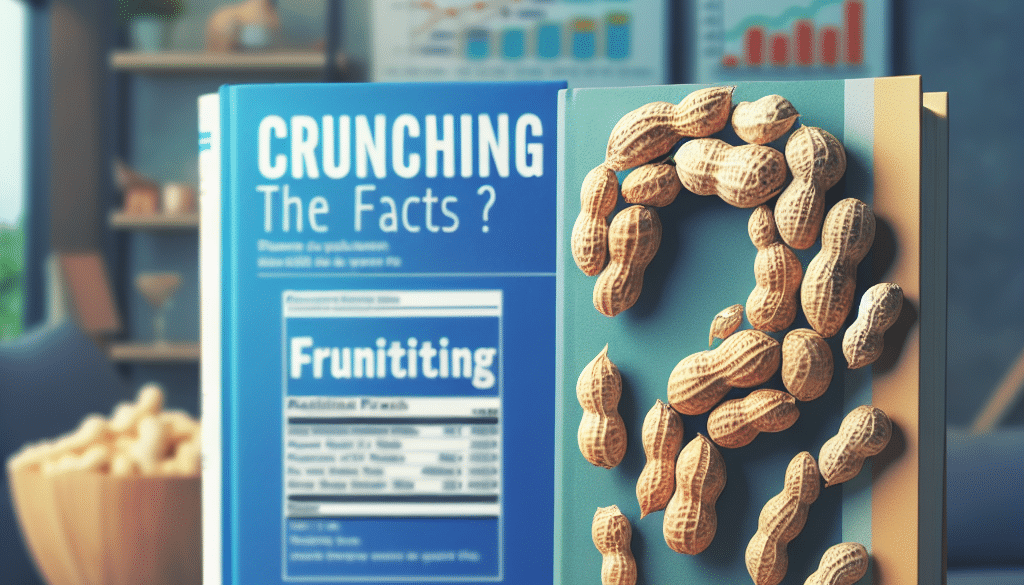Are Peanut Shells Good for You? Crunching The Facts
-
Table of Contents
- Peanut Shells: Nutritional Powerhouse or Just Roughage?
- Understanding Peanut Shells
- Nutritional Profile of Peanut Shells
- Health Benefits of Dietary Fiber
- Antioxidants in Peanut Shells
- Are Peanut Shells Safe to Eat?
- Practical Uses of Peanut Shells
- Case Studies and Research
- Conclusion: To Eat or Not to Eat Peanut Shells?
- Discover ETprotein’s Nutritious Protein Products
Peanut Shells: Nutritional Powerhouse or Just Roughage?

When it comes to peanuts, most of us are familiar with the rich, nutty flavor of the kernels. However, the shells are often discarded without a second thought. But could these fibrous husks be more than just compost material? In this article, we’ll crunch the facts and explore whether peanut shells have any nutritional benefits that could make them a valuable addition to our diets.
Understanding Peanut Shells
Peanut shells, the outer covering of the peanut kernel, are composed primarily of fiber. They are tough and not typically considered edible in most cultures. However, the question of their potential health benefits has sparked curiosity among health enthusiasts and researchers alike.
Nutritional Profile of Peanut Shells
Before we delve into whether peanut shells are good for you, let’s take a look at their nutritional content:
- Fiber: Peanut shells are predominantly made up of dietary fiber, which is essential for healthy digestion.
- Antioxidants: They contain compounds such as polyphenols and flavonoids, which have antioxidant properties.
- Minerals: Peanut shells have trace amounts of minerals like potassium and magnesium.
Health Benefits of Dietary Fiber
Dietary fiber, found in abundance in peanut shells, is known for its numerous health benefits:
- Improves Digestive Health: Fiber helps to regulate bowel movements and prevent constipation.
- Supports Weight Management: High-fiber foods can increase satiety, helping to control appetite and potentially aid in weight loss.
- Reduces Cholesterol Levels: Soluble fiber can help to lower bad cholesterol levels, reducing the risk of heart disease.
- Controls Blood Sugar Levels: Fiber slows down the absorption of sugar, which can help manage blood glucose levels, especially beneficial for those with diabetes.
Antioxidants in Peanut Shells
The antioxidants present in peanut shells may offer additional health benefits:
- Combat Oxidative Stress: Antioxidants help neutralize free radicals, which can reduce oxidative stress and lower the risk of chronic diseases.
- Anti-inflammatory Properties: The anti-inflammatory effects of antioxidants can contribute to overall health and may help prevent certain conditions.
Are Peanut Shells Safe to Eat?
Despite their nutritional content, there are several considerations to keep in mind before adding peanut shells to your diet:
- Digestibility: Peanut shells are extremely fibrous and tough, making them difficult to digest for humans.
- Choking Hazard: Their hard texture can pose a choking risk, especially for children and the elderly.
- Pesticides and Contaminants: Peanuts are often treated with pesticides, and their shells may harbor these chemicals along with other contaminants.
Practical Uses of Peanut Shells
While eating peanut shells might not be advisable, they do have several practical uses:
- Composting: Peanut shells can be added to compost bins as a source of carbon-rich material.
- Livestock Feed: Some studies suggest that peanut shells can be used as a roughage source in livestock feed.
- Industrial Applications: Peanut shells are used in the production of particleboard, paper, and even as a biofuel.
Case Studies and Research
Research on the direct consumption of peanut shells is limited. However, studies on dietary fiber and antioxidants provide indirect evidence of their potential benefits. For instance, a study published in the “Journal of Nutrition” highlights the importance of dietary fiber in maintaining gut health and preventing diseases.
Conclusion: To Eat or Not to Eat Peanut Shells?
In conclusion, while peanut shells are rich in fiber and antioxidants, their tough texture and potential contaminants make them unsuitable for human consumption. The health benefits of fiber and antioxidants can be obtained from other, more palatable sources. However, peanut shells do have value in non-dietary applications, contributing to sustainable practices and industrial innovation.
Discover ETprotein’s Nutritious Protein Products
If you’re looking for a nutritious addition to your diet, consider exploring ETprotein’s range of high-quality protein products. Their organic bulk vegan protein options, including peanut protein, offer a safe and healthy way to increase your protein intake without the risks associated with consuming peanut shells.
About ETprotein:
ETprotein, a reputable protein Chinese factory manufacturer and supplier, is renowned for producing, stocking, exporting, and delivering the highest quality organic bulk vegan protein and plant proteins. They include Organic rice protein, clear rice protein, pea protein, clear pea protein, pumpkin seed protein, sunflower seed protein, mung bean protein, peanut protein etc. Their offerings, characterized by a neutral taste, non-GMO, allergen-free attributes, cater to a diverse range of industries. They serve nutraceutical, pharmaceutical, cosmeceutical, veterinary, as well as food and beverage finished product distributors, traders, and manufacturers across Europe, USA, Canada, Australia, Thailand, Japan, Korea, Brazil, and Chile, among others.
ETprotein specialization includes exporting and delivering tailor-made protein powder and finished nutritional supplements. Their extensive product range covers sectors like Food and Beverage, Sports Nutrition, Weight Management, Dietary Supplements, Health and Wellness Products, and Infant Formula, ensuring comprehensive solutions to meet all your protein needs.
As a trusted company by leading global food and beverage brands and Fortune 500 companies, ETprotein reinforces China’s reputation in the global arena. For more information or to sample their products, please contact them and email sales(at)ETprotein.com today.














